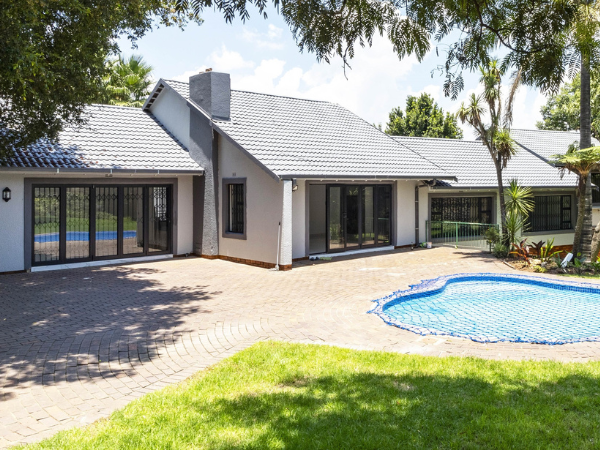
The Gauteng rental landscape: opportunities and trends
From affordability to luxury living, dive into the diverse options and latest trends defining the Gauteng rental market in 2024
The Gauteng rental market is thriving, thanks to its economic allure drawing people from across South Africa. Seeff highlights this influx as a key driver for the demand in Gauteng rentals, with tenants climbing the economic ladder and seeking improved living conditions.
Beyond affordability, the diversity of properties and price points makes Gauteng rentals appealing to a wide audience. Security-focused complexes and estates are currently the favourites, though freestanding family homes in upscale areas like Pretoria and northern Sandton/Johannesburg remain in high demand for their access to schools, amenities, and transport.
Gauteng Rental Property Rates and Growth
The Gauteng rental market has seen relatively stable rental rates in recent years. According to PayProp's data, residential rents in Gauteng saw a modest increase of just 3.6% year-on-year in the last quarter of 2024. This growth is somewhat behind the December inflation rate of 5.1%, slightly trailing the Western Cape's 3.9% increase and significantly outpacing KZN's 1.4% rise.
The average monthly rent in Gauteng, as reported by PayProp, is approximately R8,864. This figure is only slightly higher than KZN's average of R8,755 and considerably more affordable than the Western Cape's average of R10,118. Despite these numbers, Gauteng boasts numerous areas offering even more affordable rental options.
In the face of economic challenges, Gauteng has shown resilience with an improvement in tenant arrears last year. By the last quarter, only about 15.7% of tenants were behind on rent, a rate well below the national average. This figure is lower than KZN's 19.8% but slightly higher than the Western Cape's 14.3%.
Gauteng Rental Property in Pretoria East
Pretoria East has emerged as a preferred location for a wide array of tenants, from families and high-end corporate clients to ambassadorial tenants, according to PG van der Linde, rental manager for Seeff in the area. The suburb also attracts students and newcomers to the job market.
Van der Linde notes that demand is expected to remain strong until interest rate reductions take effect. Average rentals hover around R12,000 per month, with high-end homes in prestigious suburbs like Waterkloof, Mooikloof, and Woodhill reaching up to R50,000 per month. Properties in the exclusive Woodhill Golf Estate can command rents between R55,000 to R79,300.
Gauteng Rental Property in East and West Rand and Johannesburg South
The East and West Rand, alongside Johannesburg South, are known for their excellent affordability with rental prices in the R7,000 to R14,000 per month range. Sectional titles and security complexes are the most sought-after in these areas, reflecting a high demand for secure and cost-effective living options.
Gauteng Rental Property in Sandton and Johannesburg North
Sandton and Johannesburg North remain active rental markets, particularly in the R10,000 to R15,000 per month price range, says Caché Pasqualle, rental manager for Seeff Sandton.
Suburbs like Hurlingham and Hyde Park attract upper-income tenants, with rental prices soaring up to R45,150 and R60,000 to R92,250, respectively. The allure of the northern suburbs extends beyond business; it's about the status, lifestyle, proximity to top amenities, and private schools.
Those unable to afford to buy often choose to rent in these areas until they can purchase a home.
Gauteng Rental Property in Randburg
Randburg continues to attract middle-class tenants thanks to its central location and affordability. John O'Reilly, rentals manager for Seeff Randburg, reported a high demand in 2023 with a consistent supply of rental properties.
The area is expected to see further growth this year. Rental rates mostly range from R7,000 to R14,000 per month, with top-end houses in suburbs like Randpark Ridge reaching up to R22,000 to R25,000 per month. A family home in Ferndale, near Bryanston, can go for around R24,000.
Gauteng Rental Property in Soweto
According to Khosi Sibiya and Phindi Mphahlele, licensees for Seeff in the area, Soweto stands out as one of the most accessible and affordable neighbourhoods.
Rentals vary widely, with one-bedroomed cottages available from R1,800 to R2,500 and two-bedroomed houses from R3,500 to R4,000. Larger houses can rent for R5,000 to R8,000 per month.
But Soweto is not just about affordability; it's a popular choice for its amenities, school and transport access. It's especially favoured by students attending nearby universities and medical staff working at local hospitals. Many tenants eventually transition from renting to homeownership as their financial situations improve.

The Gauteng rental market is bustling with opportunities, offering everything from budget-friendly homes to luxury estates. With its rich diversity and resilience against economic challenges, there's something for everyone.
Contact Seeff to find your ideal rental in this vibrant market. Let's make your Gauteng move happen.







